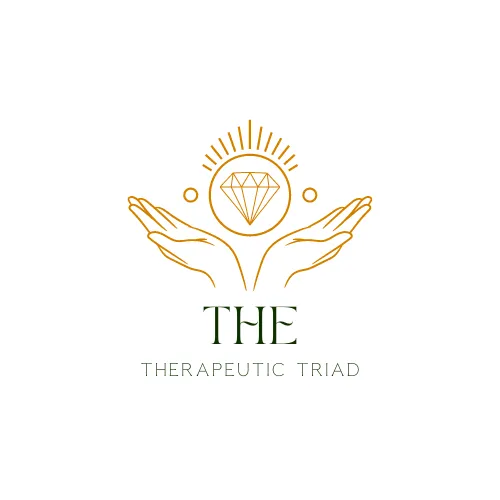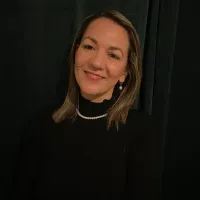
ABOUT MONICA STANESCU
Your turn to share your story!
Why not message me at +44 7436869716, or email me [email protected], or book an introductory session.
My interest in psychology and therapeutic approaches sparked about twenty years ago. Going through various adverse childhood experiences, being surrounded by unhealthy behaviours, and displaying unhealthy behaviours, understanding the mind and human behaviours becomes something of high interest. Hence, I went on to study Psychology, and I found it amazing! I initially wanted to study clinical psychology, but I was looking for more, so I decided to pursue a career in the Human Resources and Recruitment field. This time of my life was truly spectacular! I worked and met so many wonderful people. I still carry some wisdom from that time. My favourite is: “I am too poor to buy cheap shoes”, and I genuinely believe it, but I also love shoes, so it’s a good excuse when I want to buy another pair. I developed strong diplomatic and professional skills, learned to adjust my communication style, and refined my people skills, which, over time, correlated with a high level of empathy and authenticity, becoming my strengths as a person and now as a therapist.
Time passed, and when I discovered a Health Psychology Master's at the University of the West of England, it felt like the right approach to follow. I have always believed in the biopsychosocial approach, which holds that the environment in which we grow and live is essential to our development. That was the time when I truly understood how traumatic it had been to receive the diagnosis of a chronic condition in my early twenties, how it had impacted my identity as a woman and how it had taken over my being and my life. I went through all the stages of grief, and it turned my world upside down. But with great support around me, therapy, and friends, I managed to rebuild myself, the way I feel about myself. This time, in a conscious manner, by my values and beliefs, my wishes for the future, and how I wanted to conduct my life. Immediately after receiving my MSc qualification, I began working as a Specialist Mentor, providing mental and emotional support to students who are challenged by various disabilities, long-term conditions, and/or learning difficulties. When I studied for my undergraduate degree, I remember feeling that my mind was scattered. I had no notion of time management or prioritisation, struggled to study and focus, and lacked motivation for a proactive approach to preparation ahead of exams. I would end up not sleeping well, not eating the last two days before exams, and struggling to study.
Now, I understand that I needed guidance and support, and nowadays, someone does not need to spend years trying to change unhealthy beliefs and behaviours to healthy ones. You need the right support, tailored to your unique needs at that time. Hence, working with students holds a significant place in my heart. In my quest to develop as an individual and professional, I began studying the Person-Centred Approach (more commonly known as counselling). The counselling course was mind-blowing from a personal development perspective. I had to go back to therapy to process, challenge and integrate old, deeply ingrained beliefs. At a professional level, developing and applying the Person-Centred Approach made a significant difference; however, I soon identified a new obstacle: trauma. Hence, I studied and integrated a one-year Trauma-Informed and Somatic Psychotherapy course, which allowed for a thorough exploration of emotional experiences and their expression through somatic work. This approach enables a healthy and rapid process and integration of our lived experiences.
Studying Cognitive-Behavioural Hypnotherapy was the cherry on top! I have always been fascinated by hypnotherapy, and I believe it would beautifully complement my set of skills to be able to offer a safe space and contain any challenges that one might bring into the therapeutic setting, thereby enhancing the process by deepening self-confidence and self-esteem through targeted suggestions that reach the core of being. I now possess well-rounded skills and professional expertise to support individuals in their transformative journeys. However, the most important thing is that I have grown significantly due to the extensive knowledge I’ve accumulated, which my high level of empathy and non-judgmental approach have enhanced. I am currently enrolled as a trainee counsellor studying at Level 5, and I am integrating the person-centred approach not only in my professional life but also in my personal one; it has become a lifestyle. I am happy to share this with anyone who might need a safe space to figure out ways to overcome emotional obstacles or to live well with daily challenges, such as managing stress, delivering a presentation, or navigating social, romantic, and family relationships.
Thank you for taking the time to get to know me. I look forward to hearing your story!

What’s your frame of reference?
What’s your frame of reference?
How aware are you of your values? Which moral guidelines do you follow? How do you ground yourself in reality?
These are only a few essential questions that could help you assess where you stand regarding healthy perceptions. In previous blogs, I discussed the conditions of worth developed in childhood – as young people, some of us develop beliefs based on external expectations and evaluations. That’s quite alright; a child or an adolescent wouldn’t have the maturity to reach a “reality check” on their own if they lack support at home or outside the home.
However, as an adult, you are responsible for looking after yourself and having a “reality check” of where you are and where and how you would like to be. I am aware it’s easier said than done, but regardless of how slow the progress is, it's healthier to start rather than continue living in blurred and unclear frames of reference. This is what leads to psychological distress and even mental illness.
Wishy-washy attitudes, looseness, and double standards applied whenever it feels convenient lead to confusion, increased anxiety, having boundaries crossed, and getting emotionally hurt (maybe even physically), to the extent of experiencing at least a depressive episode, if not depression as a disorder. It is crucial to identify what shades of grey sit well with you from that whole spectrum between white and black, and as long as they serve you, do your best to stick to those. Allow yourself to reevaluate once in a while, and if needed, why not change the frame of reference?
Be kind to yourself and seek support!
💎 At The Therapeutic Triad – online therapy services, we offer a safe space based on empathy and nonjudgment. In this space, you are welcomed to learn more about yourself and identify strategies to provoke beneficial change according to your needs.
📣 For a limited time, we are offering 25% off therapy sessions for specific categories of people! Use discount code TRAID25 at checkout.
💎 Book your session at www.therapeutictriad.com and take the first step toward a healthier and happier self.
